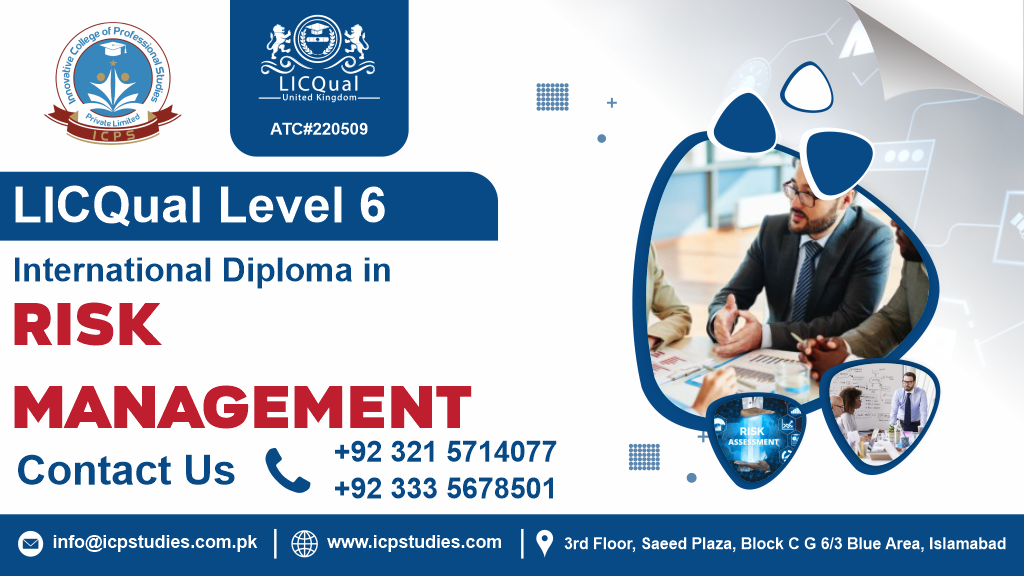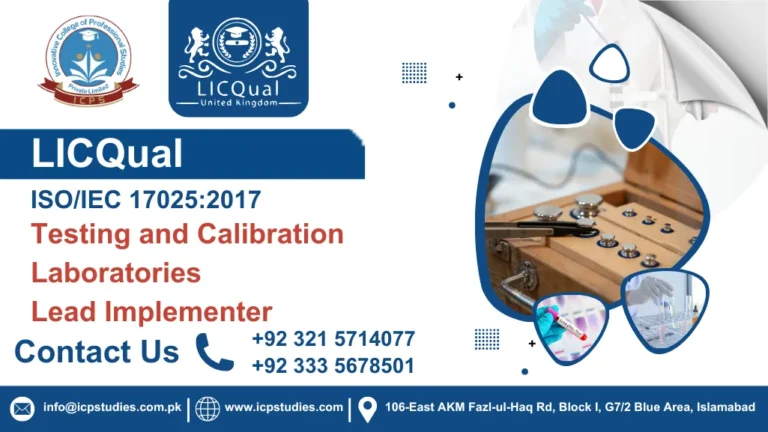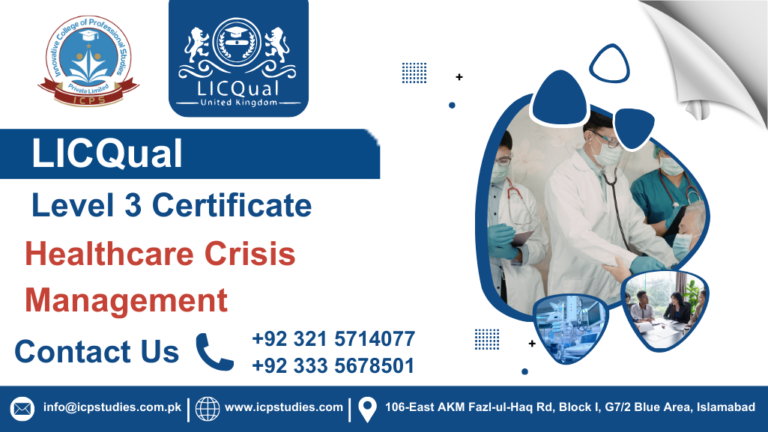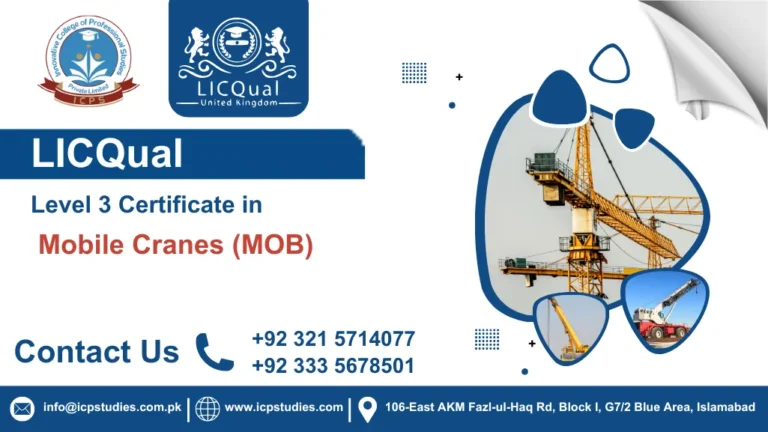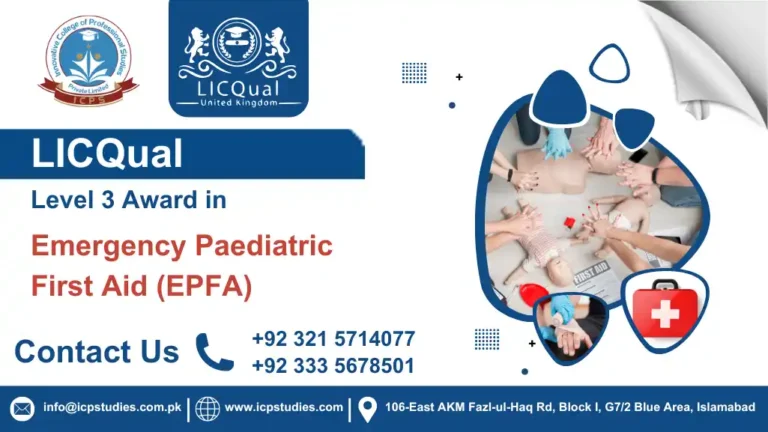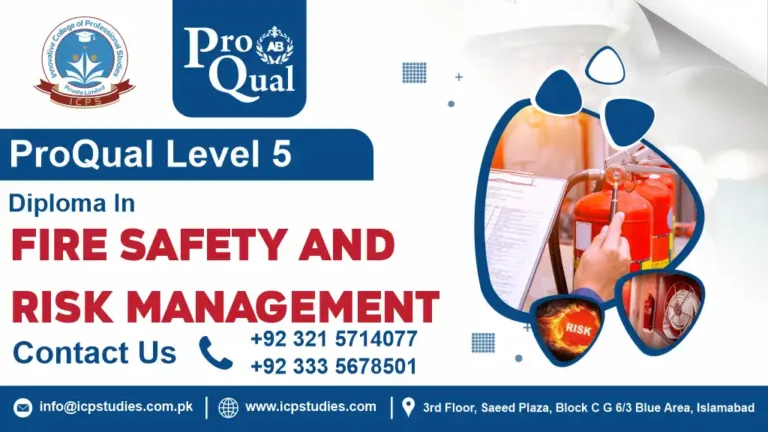In today’s business environment, effective risk management is a crucial skill for professionals at all levels. Whether you are managing financial risks, operational challenges, or strategic uncertainties, the ability to identify, assess, and mitigate risks is essential for success. The LICQual Level 6 International Diploma in Risk Management is a UK-based certification designed for individuals looking to enhance their risk management expertise and develop critical leadership capabilities in managing risks across diverse industries.
The LICQual Level 6 International Diploma in Risk Management is an advanced qualification specifically tailored to professionals seeking to enhance their skills in identifying, assessing, and managing risks in a business environment. This diploma provides a thorough understanding of the principles of risk management, equipping students with the knowledge and tools required to implement effective risk management strategies at an organizational level.
Don’t let uncertainty hold you back from achieving your professional aspirations. Seize the opportunity to embark on a transformative journey with the LICQual Level 6 International Diploma in Risk Management. Empower yourself with the knowledge, skills, and confidence to thrive in today’s risk-driven world. Enroll now and embark on a journey toward professional excellence and success.
All About Level 6 International Diploma in Risk Management
Course Overview
The LICQual Level 6 International Diploma in Risk Management is an advanced, UK-based qualification designed for professionals who want to enhance their ability to identify, assess, and manage risks in an organization. This assignment-based certification provides a comprehensive understanding of risk management principles, enabling individuals to navigate the complexities of both operational and strategic risks.
Tailored for those in or aspiring to managerial positions, the course equips students with the tools and knowledge needed to develop and implement effective risk management strategies. With a global focus, the diploma is recognized and respected by employers worldwide, ensuring that your qualification is valued no matter where you work.
The course offers flexibility, as it is entirely assignment-based, allowing you to study at your own pace while applying the learned concepts directly to real-world scenarios. Whether you are looking to formalize your risk management expertise or seeking a stepping stone to senior leadership roles, the LICQual Level 6 International Diploma in Risk Management offers the skills and qualifications necessary for career progression in this critical field.
Study Units
Learning Outcomes
Here are the expected outcomes for each study unit:
- Risk Management: An Introduction and Overview:
- Develop a comprehensive understanding of the principles, concepts, and objectives of risk management.
- Gain insights into the importance of risk management in organizational decision-making and strategic planning.
- Identify different types of risks and their potential impact on organizational objectives and performance.
- Corporate Culture and Risk Management:
- Explore the role of corporate culture in shaping risk management practices and outcomes within organizations.
- Understand how organizational values, norms, and behaviors influence risk perception, tolerance, and response.
- Learn strategies for fostering a risk-aware culture that promotes transparency, accountability, and ethical conduct.
- Risk Identification Methodologies:
- Acquire knowledge of various risk identification methodologies and techniques, including risk registers, brainstorming sessions, SWOT analysis, and scenario analysis.
- Develop skills to systematically identify and categorize risks across different organizational functions, processes, and activities.
- Understand the importance of involving stakeholders in the risk identification process to ensure comprehensive risk coverage.
- Incident Prevention and Risk Control:
- Learn strategies and best practices for preventing incidents and mitigating risks before they escalate.
- Explore the concept of risk control measures and their role in reducing the likelihood and severity of adverse events.
- Develop skills in designing and implementing effective risk control strategies tailored to specific organizational needs and contexts.
- Risk Assessment and Legal Compliance:
- Gain proficiency in conducting risk assessments to evaluate the likelihood and potential impact of identified risks.
- Understand the regulatory requirements and legal obligations related to risk management in different industries and jurisdictions.
- Learn how to ensure organizational compliance with relevant laws, regulations, standards, and industry guidelines through effective risk management practices.
- Responsible Governance and Performance Measurement:
- Understand the principles of responsible governance and its role in driving effective risk management practices.
- Learn how to establish risk management frameworks, policies, and procedures that align with organizational goals and objectives.
- Develop skills in performance measurement and monitoring to assess the effectiveness of risk management efforts and drive continuous improvement.
By the end of the course, participants should have acquired a comprehensive understanding of risk management principles, methodologies, and best practices, along with practical skills that can be applied in real-world scenarios. They should be able to confidently identify, assess, and manage risks, contribute to a risk-aware corporate culture, and support responsible governance and performance measurement within their organizations.
Admission Criteria
Here are the typical entry requirements for the course:
- Educational Qualifications:
- A minimum of a high school diploma or equivalent qualification is typically required for enrollment in the course.
- Some institutions may have specific educational prerequisites or recommended backgrounds in fields such as business, management, finance, or related disciplines.
- Work Experience:
- While prior work experience is not always mandatory, participants with relevant professional experience in areas such as risk management, corporate governance, compliance, or related fields may find the course content more accessible and applicable.
- Work experience may also enhance participants’ understanding of risk management concepts and their ability to apply them in practical scenarios.
- Language Proficiency:
- Since the course materials and instruction are typically delivered in English, participants should have a sufficient level of proficiency in the English language to understand and engage with the content effectively.
- Some institutions may require proof of English language proficiency through standardized tests or other means.
- Computer Literacy:
- Basic computer literacy skills are often required, as participants may need to access online learning platforms, utilize software tools for risk management, and communicate electronically with instructors and fellow participants.
- Proficiency in using common office software applications such as word processing, spreadsheets, and presentation software may also be beneficial.
- Commitment and Motivation:
- Participants should demonstrate a strong commitment to completing the course and actively engaging with the learning materials and activities.
- Motivation to learn and a genuine interest in risk management principles and practices are essential for successful completion of the course.
- Additional Requirements:
- Some institutions or training providers may have additional requirements, such as undergoing a pre-course assessment or interview to assess participants’ suitability for the program.
- Certain courses may have specific prerequisites or recommended background knowledge in areas such as finance, law, or corporate governance.
Overall, the entry requirements for the course aim to ensure that participants have the necessary foundational knowledge, skills, and attributes to benefit from the curriculum and succeed in their learning objectives.
Overall, the entry requirements for the LIQual Level 3 Certificate in Risk Assessment Principles and Practice aim to ensure that participants have the necessary foundational knowledge, skills, and attributes to benefit from the course and succeed in their learning objectives.
Ideal Candidate
It is particularly suitable for:
- Professionals in Risk Management Roles: This course is ideal for individuals currently working in risk management roles who want to enhance their knowledge and skills. Whether you’re a risk analyst, risk manager, or risk consultant, this course can provide valuable insights and help you stay updated on industry best practices.
- Business Owners and Entrepreneurs: Business owners and entrepreneurs who want to better understand the risks associated with their ventures can benefit from this course. By learning about risk identification, prevention, and control, they can make informed decisions to protect their businesses and maximize opportunities for success.
- Corporate Executives and Managers: Corporate executives and managers responsible for overseeing risk management within their organizations can gain valuable knowledge from this course. Understanding the fundamentals of risk management can help them effectively assess risks, develop risk management strategies, and ensure compliance with regulations.
- Professionals Seeking Career Advancement: Individuals looking to advance their careers in risk management or related fields can use this course as a stepping stone. Whether you’re seeking a promotion or transitioning into a new role, the knowledge and skills gained from this course can enhance your credentials and increase your employability.
- Students and Graduates: Students and recent graduates interested in pursuing careers in risk management, finance, or business can benefit from taking this course. It provides a solid foundation in risk management principles, which can complement academic studies and increase job prospects in the future.
- Consultants and Advisors: Risk management consultants, advisors, and auditors who provide services to organizations can enhance their expertise by enrolling in this course. It can help them stay updated on the latest trends, methodologies, and regulations in the field of risk management, thereby improving the quality of their services.
This course caters to individuals from various backgrounds and professions who are interested in gaining a comprehensive understanding of risk management and its importance in today’s business environment. Whether you’re new to the field or seeking to deepen your expertise, this course offers valuable insights and practical knowledge to help you succeed in managing risks effectively.
FAQs about Level 6 International Diploma in Risk Management

